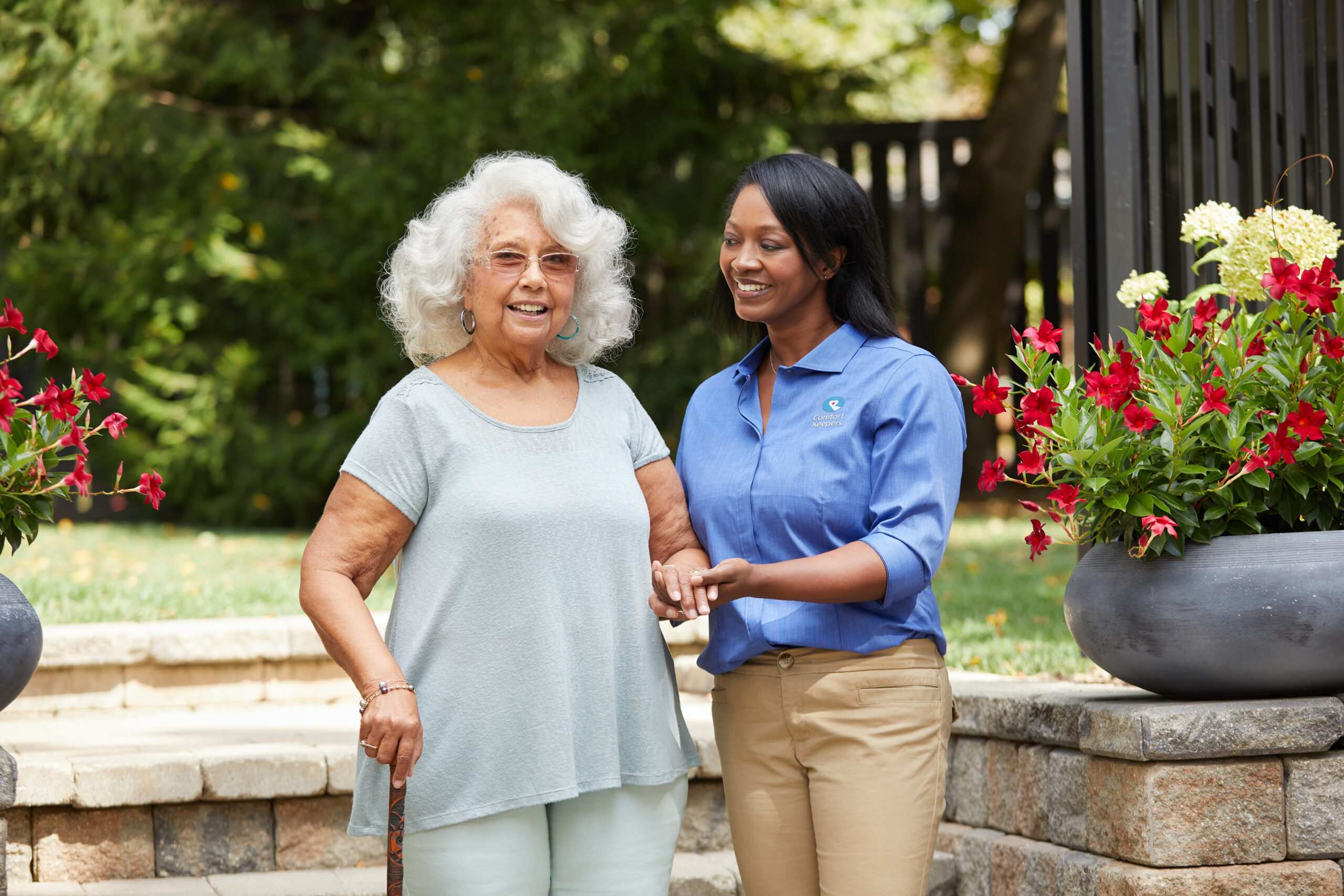Caregiver Experts Share Tips for Coping with Sundown Syndrome
Home Care Blog | September 25, 2017

Tips for Coping with Sundown Syndrome
Coping with Sundown Syndrome | Are you a caregiver for a senior loved one that is dealing with Alzheimer’s disease? In honor of World Alzheimer’s Awareness Month this September, Comfort Keepers of Calgary, AB is proud to provide tips on dealing with one of the most common problems associated with this disease.
Alzheimer’s disease and other forms of dementia are degenerative diseases. As a memory illness progresses and a senior’s memory fades, the symptoms they present change. Sundown syndrome, also known as sundowning, is a symptom of Alzheimer’s that occurs in the middle stages of the disease. The sleep disruption, confusion, and behavioral changes that come with sundowning can be overwhelming for family caregivers. Below are some tips for coping with sundown syndrome and other Alzheimer’s symptoms:
Recognize the Signs
Sundown syndrome, or sundowning, received its name because it’s symptoms typically occur in the late afternoon or evening. Alzheimer’s symptoms such as confusion are exacerbated by the end-of-day physical and mental exhaustion. According to the Alzheimer’s and Dementia Caregiver Center, as many as 20% of seniors with Alzheimer’s will experience increased anxiety, confusion, and agitation late in the day. Being able to recognize sundowning and other Alzheimer’s symptoms is the first step in providing proper dementia care.
Manage Triggers to Create a Safe Environment
Poor lighting and shadows often increase confusion and anxiety with seniors experiencing sundowning. Keep the home well-lit in the evenings to help your loved one recognize their surroundings and that they are safe.
Since exhaustion contributes to Alzheimer’s symptoms, make a comfortable and safe sleep environment. Sticking to a sleep schedule and avoiding mental stimulants like caffeine, sugar, or watching television before bed are also helpful.
Know When to Look For Help
Even when you are able to identify Alzheimer’s symptoms and the negative effects of things like sundowning, there may come a time where professional help becomes necessary. Professional caregivers and senior living facilities specially trained in memory care may be better suited to care for your loved one. What is most important to know when coping with memory illnesses is that you are never alone.
To learn more about how your or your senior loved one could benefit from having a professional in home caregiver, contact us or call 587-315-5388 and schedule a free in-home consultation.
Individualized Home Care Options
Long-Term Home Care, 24 Hour Home Care & Short Term Care Options Customized for You







